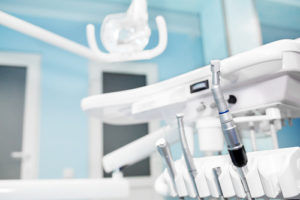 Effective July 23, 2017, a new law (Substitute Senate Bill 5322) resolves many long-running conflicts between licensed dentists and dental support organizations, which are typically not owned by licensed dentists. The bill brings clarity to a number of issues, though some issues remain unaddressed.
Effective July 23, 2017, a new law (Substitute Senate Bill 5322) resolves many long-running conflicts between licensed dentists and dental support organizations, which are typically not owned by licensed dentists. The bill brings clarity to a number of issues, though some issues remain unaddressed.
Dental support organizations have used creative methods to make inroads within Washington’s dental industry.
Creativity is required because under Washington’s corporate practice of medicine doctrine, an entity providing dental services must be owned and controlled by licensed dentists.
Typically, dental support organizations are not owned by dentists, and thus, the corporate practice of medicine doctrine prohibits them from directly providing or profiting from dental services. To get around this limitation, dental support organizations enter into and receive payments under management or franchise contracts with dental practices, which contracts often give the dental support organizations extensive control over the dental practices.
When such control extended too far, the State of Washington’s enforcement agency concludes that the dental support organization is improperly engaging in the unlicensed practice of dentistry (i.e., violating the corporate practice of medicine doctrine), and will bring an enforcement action. The state has found the following contract terms, among others, objectionable:
- paying a fee to the dental support organization based upon a percentage of the dental practice’s receipts;
- prohibiting the dental practice from using alternative vendors for supplies, lab work, and services;
- imposing non-competes on the dentists; restricting the transferability of ownership in the dental practice;
- granting the dental support organization custody of business and patient records;
- giving the dental support organization the power to settle billing disputes; and
- having the dental support organization select and/or hire support personnel other than dentists.
How the Bill Changes What It Means to Practice Dentistry
By defining what does and does not constitute the practice of dentistry, the new bill specifically authorizes or prohibits a number of these contracting practices. Under the bill, a dental support organization (or any unlicensed person) may now:
- Own or lease assets used by a dental practice;
- Employ or contract for the services of personnel other than dental professionals (i.e., other than licensed dentists, licensed dental hygienists, licensed dental auxiliaries, certified dental anesthesia assistants, and registered dental assistants);
- Provide business support and management services to a dental practice; and
- Receive fees for any of the above services as agreed to by the dental practice owner or owners. Presumably, this authorizes a percentage split of revenue.
The bill prohibits certain practices. Under the bill, the Uniform Disciplinary Act (UDA) prohibits a dental support organization (or any unlicensed person) from interfering with a dentist’s independent clinical judgment by:
- Limiting the time spent with a patient or performing dental services, or placing conditions on the number of patients treated or procedures completed;
- Limiting or imposing requirements on:
- a dentist’s treatment decisions;
- the manner in which a dentist uses equipment or materials;
- the use of a laboratory or materials, supplies, instruments, or equipment necessary to provide diagnoses and treatment consistent with the standard of care;
- professional training necessary to serve patients;
- referrals to other practitioners;
- advertising, if it would result in a violation of the dentistry law or the UDA; or
- communications with patients.
- Interfering with access to patient records or a refund of a payment.
How the Bill Protects Patients
Finally, the bill adds a number of patient protections. An attending dentist, without reasonable cause, may not neglect, ignore, abandon, or refuse to complete the current procedure for a patient. An attending dentist who withdraws responsibility for a patient must advise the patient of two things:
- Termination of treatment is contemplated and that another dentist should be sought.
- The dentist will be reasonably available for up to 15 days to render emergency care.
Generally, in the case of employed dentists, owners of the dental practice are responsible for these requirements rather than the employed dentist.
If you have additional questions about the Substitute Senate Bill 5322 and the new opportunities or requirements that it creates, please contact Luke Campbell at lcampbell@mpba.com or 206-682-7090. Luke Campbell has extensive experience representing dentists and other health care providers in a variety of business transactions and regulatory compliance matters, including the unlicensed practice of medicine or dentistry, the corporate practice of medicine doctrine, anti-rebate, and other health law matters.